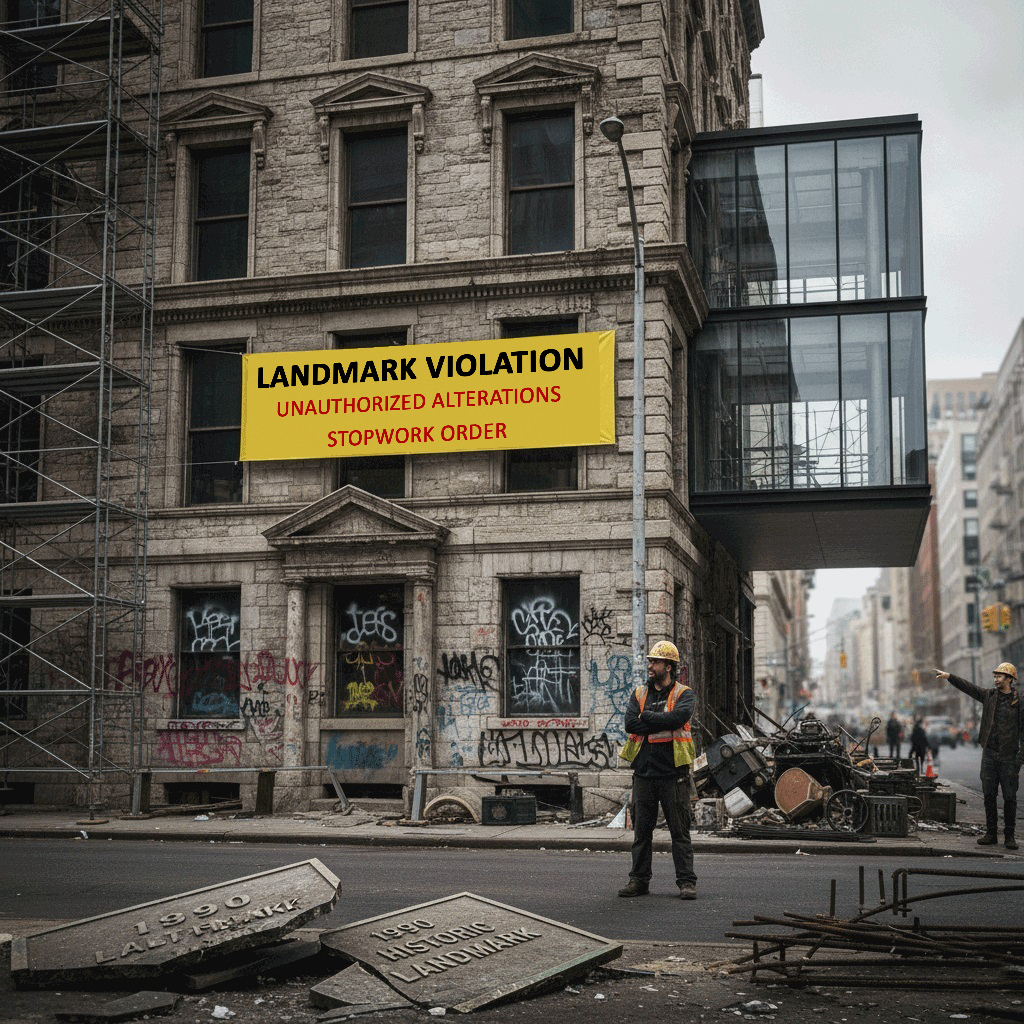Owning or managing property in a historic district or on a designated landmark in New York City comes with special responsibilities. The NYC Landmarks Preservation Commission (LPC) enforces rules protecting architectural and historic features — and failing to follow those rules can lead to fines, stop-work orders, and permit delays. This guide explains landmark violations, why they matter, and how NYC Building Violation Removal Inc. helps property owners get back into compliance quickly.
What is a Landmark Violation?
A landmark violation occurs when work is performed on a landmarked building or within a historic district without LPC approval, or when work deviates from an approved Certificate of Appropriateness. Common examples include unauthorized changes to facades, windows, storefronts, roofs, or demolition of character-defining elements.
Why Landmark Violations Are Serious
- Fines: Civil penalties are issued by LPC and can escalate to daily fines if unresolved.
- Stop-Work Orders: Illegal work may be halted; continuing work risks more penalties.
- Permit Blocks: Unresolved violations can prevent issuance of DOB permits.
- Liability on Sale: Violations can follow a property and affect financing or resale.
Common Triggers
- Replacing windows, storefronts, or siding without LPC review.
- Installing signage, lighting, or HVAC penetrations that affect the exterior.
- Demolition or removal of historic features without authorization.
- Neglect or failure to maintain character-defining elements.
How Enforcement Works (Quick Overview)
- Warning Letter — LPC may first issue a warning to remedy the issue.
- Notice of Violation (NOV) — Formal notice often followed by an OATH hearing if contested.
- Fines & Daily Penalties — If not remedied, civil penalties and daily fines may be imposed.
- Remediation — Filing LPC applications, corrective work, and negotiating closure.
How We Help
NYC Building Violation Removal Inc. specializes in resolving Landmark and LPC violations. Our services include:
- Investigating property history and searching LPC records for past violations.
- Preparing and filing LPC applications & Certificates of Appropriateness.
- Coordinating corrective construction and obtaining necessary DOB permits.
- Representing owners during OATH and LPC enforcement negotiations to reduce penalties.
Call us for a consultation: 347-828-1917
Email: nycviolationremovalinc@gmail.com
Pro Tips to Avoid Violations
- Always check LPC status before exterior work — even "maintenance" can trigger review.
- Document prior work and permits when buying a property.
- Respond promptly to LPC letters to avoid escalating fines.
- When in doubt, apply — obtaining LPC approval first saves money and delays later.
